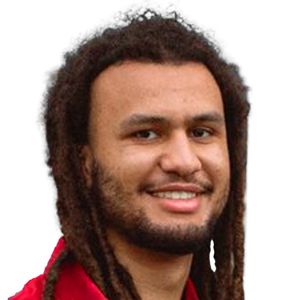GANGUE-RUZIC: CanMNT need to offer more clarity in CanWNT's fight for equal pay
VANCOUVER – For the first time since they elected to not take the field for a friendly against Panama due to ongoing negotiations with their federation, the CanMNT spoke to the media after a training session on Wednesday, outlining how tough it was for them to make such a decision.
“It was a tough decision for us,” Canadian captain, Atiba Hutchinson, told reporters. “It took a lot for us, but in our eyes, we believed it was the right thing for us to do.
Following the events of Sunday, which transpired following an open letter released to social media through TSN reporter Rick Westhead where the team outlined a specific list of demands to the Canadian Soccer Association, it was the first time where the players were able to speak of specifics in the letter.
One of the biggest topics? The discussion of equal pay for both the men’s and women’s team, something that the men’s team mentioned in their list of demands.
Especially in light of a historic deal south of the border, where the US Soccer Federation recently reached a deal with its players to pay both their men's and women's teams equally just last month, it was a big point of discussion, for good reason.
Except, while the players committed to "an equitable structure" with the women's team, based on their letter, the wording of their actual demands didn't exactly match that, as they then said that they wanted to have the "same percentage of prize money" earned at their respective World Cups.
This is the "Dear Canada" letter released by Canada's national men's team players.
— Rick Westhead (@rwesthead) June 5, 2022
Asking for a review of Canada Soccer's broadcast & sponsorship contracts, 40% of World Cup qualification money, and a joint contract with the women's team with equal compensation for match fees. pic.twitter.com/STazGyJ9MW
The issue is one of clarity. While an equitable split of the percentages could be theoretically equal in the sense that they could be 50-50 (or 40-40-20, 33-33-33, etc), in practice, it could be a different story, as FIFA's prize money for the men at the upcoming 2022 men's World Cup is $440 million compared to just the $60 million that is earmarked for the 2023 Women's World Cup, meaning that the women would stand to earn significantly lesser sums.
Unlike the US deal, which sees both teams sharing from the same pool of money, it would’ve meant similar percentages on vastly different sums, creating a large disparity of money between both sides, which isn't equal pay.
Because of that, that led the women's team to put out a statement of their own Sunday, where they noted that they did not "view equal FIFA percentages", as was potentially outlined in the men's team demands, as equal pay.
A statement from the Canadian Women’s National Team players: pic.twitter.com/JHqkm3iiXr
— CanadianSoccerPlayers (@PlayersCanadian) June 6, 2022
And on Wednesday, women's midfielder, Janine Beckie, further clarified their stance, speaking out on these negotiations in an interview with TSN.
"We want equal pay, and we're not willing to settle for anything less," Beckie told TSN.
Not only that, but she also noted that the men's letter was released without consulting the women's team, something that they later apologized for, with both sides having now begun discussions with each other, as well as with Canada Soccer.
"They have apologized for using our team in their statement without asking. So, we massively respect that," Beckie explained.
Speaking to the media on Wednesday, Hutchinson clarified that his team is certainly in support of pursuing equal pay, as well, noting that his team are eager to reach such a solution, happy that discussions have now opened up between both parties.
"We have been (in discussions), that's another step for us," Hutchinson explained. "I think it's important to have good communication with each other, so both parties are working on that.
"We just want it (the pay) to be equal, we think that's the fairest thing."
So now, what remains to be seen is if they've officially adjusted - or, at least, further clarified - their stance from what was written in the letter, as negotiations between all parties remain ongoing. Verbally, that appears to be that same level of commitment from the men, at least from what Hutchinson is saying.
As both the men's and women's sides made sure to mention, they have a good relationship with each other, and are happy that they were able to open up dialogue on this, something that they hope leads to a positive resolution.
And for what it's worth, someone who is very connected to this situation, the CanMNT's head coach, John Herdman, who previously coached the women's team, feels that this is heading in the right direction right now.
He's not directly involved in negotiations, having taken a step back to let the players and federation work things out, but from discussions that he's had, he's been encouraged by what's going on.
Through that, he hopes that can lead to an amicable resolution, one that can alter the future of the sport in the country for decades to come, much like the US were recently able to do.
"It's a critical part of this conversation," Herdman said of the equal pay discussion. "I think this group of men are super supportive from everything I've learned about how they feel about this situation, they're supportive, so it's time, the women have gone back-to-back-to-back podiums."
"I think they need to stand and work together for the betterment of everyone in this country, grassroots football for the next generation of male and female players, so when they come together, this country is going to be stronger than ever before."

